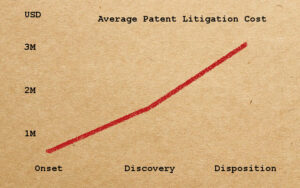Approaching the 2017 holiday shopping season, the e-commerce giant Amazon’s stock price is heading to $1,200. Amazon.com, often quoted as “The Everything Store”, reportedly accounts for 46% of the entire online retail sales.
An interesting thing about shopping at Amazon.com is that you do not particularly notice the items sold directly by Amazon. All items sold at Amazon receive the same treatment, and the same format applies to all product pages. The product order is determined by objective statistics like sales, rating, and price. Quite often, items sold by third-party sellers are bestsellers or Amazon’s Choice.
As such, consumers can gather reliable product information and compare them conveniently, finding little reason to go another place to shop. In addition, since all the retailers who sell identical products are competing for the lowest price in real time, you will likely find a great deal.
On the other hand, the price competition among online retailers is not the merriest news for the manufacturers and offline retailers. Even worse, if a product sells well, then there appear hordes of copycats selling similar products with look-alike photos and descriptions. That certainly induces angry moments for companies who went all the way to market a new product.
In the Online Space, Branding is Especially Important.
Consumers do not possess means to tell whether an article was manufactured in the same production line or not, so they refer to brand labels. Without branding, there is no way to distinguish your products from others’ similar goods. Your investment on quality assurance and customer service will be rewarded only if you have a brand name that consumers remember.
For this reason, retailers let alone manufactures and wholesalers often create their own brands and sell branded items at Amazon.com. Especially, standardized products with little variation and goods that do not require special manufacturing technique or know-hows often get branded by retailers.
Amazon recognized the importance of branding early on and created “Amazon Brand Registry” to help companies to protect their brands. Once registered, the companies who own brands can efficiently monitor and control products marked with their brand names and logos; now Amazon is requiring brand owners to register their brands with the United States Patent and Trademark Office first, for which I get an increased number of inquiries.
Even if you sell only via offline channels, you need a U.S. trademark registration to protect your names in the online space. For example, if a retailer opens an Amazon Seller account in a name well known as a local beauty supply store, consumers in the local area may make online purchases relying on the local retail store’s good will. This is an outright trademark infringement, but without a trademark registration you may not stop them easily.
Trademark registration is a simple but important legal process.
If you understand the process and prepare accordingly, you can greatly reduce the cost of registration. You may visit the USPTO website to learn about the process. For your information, I estimated the typical cost and time required for the following hypothetical situations.
- If you are registering a mark that is already in use,
- You need one or two days to gather relevant information and evidences of your use. Most of all, you need pictures of your product, advertisements, and logo image, among others, and you need to confirm that the mark meets legal requirements.
- Filling out an application form takes only minutes (up to an hour for a novice applicant) using the Trademark Electronic Application System by the USPTO for free1. You can use your credit card to pay online for the application fees, which are around $250 in most cases.
- In three to four months, the examination begins, and in a month your trademark can be officially registered.
- If you are registering a mark that you intend to use in the future,
- Although the process is not too different, you probably want to consult a professional2 about the appropriateness of your intended mark i.e. whether the mark will be legally enforceable. A short consultation that costs only 20 minutes of your (and your attorney’s) time can be extremely productive.
- You need to provide an evidence of your actual use within a required period, which is usually 6 months, to complete the registration process.
- If you already have a USPTO registered trademark,
- Trademark registration must be renewed, but many trademark owners fail to do maintenance and end up abandoning their rights.
- Regardless of a continued use, the registration can be cancelled unless you pay maintenance fees (from $100 to $425) at 5-10 years interval as prescribed by the USPTO.
Now, small to mid-size retailers can reach the national market thanks to the advancement of logistics and order fulfilment services. This also means even if you are focusing on a local market, you need to compete with retailers and wholesalers across the country.
If you have not registered your trademark or only registered with the state government, you should take steps to protect your brand and your customer’s trust with a USPTO trademark registration.








